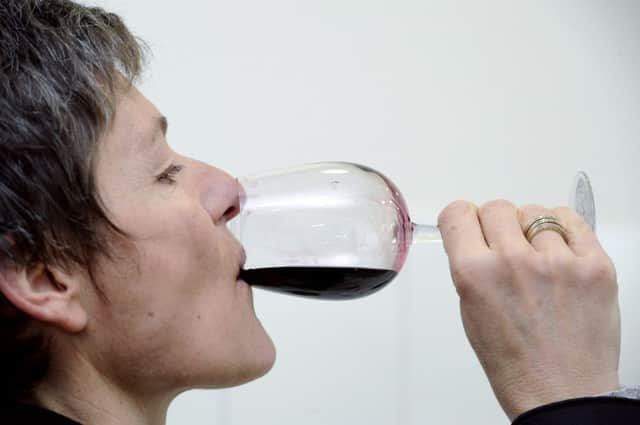Women ‘stop before they have one too many drinks’


Researchers who held group discussions with friends in Glasgow, both male and female and aged 30 to 50, found women were more likely to stop drinking when they reached a certain level of intoxication, which they described as “being in the zone”.
Participants in the study by Glasgow Caledonian University described being “in the zone” when they felt they had had enough to drink to feel relaxed and chatty, but not inebriated.
Advertisement
Hide AdAdvertisement
Hide AdOne participant said: “I feel like I’ve developed an internal kind of gate, which I know I don’t want to go through. It’s hard to verbalise the feeling. It’s not necessarily that I feel sick or I feel dizzy. I’m just like, ‘No, that’s it. That’s enough’.”
The study – called Staying in the Zone but Not Passing the Point of No Return: Drinking in Mid-life’ – explored how middle-aged men and women experience and understand alcohol.
Dr Carol Emslie, who co-authored the paper, said: “The men in the study just said they knew when to stop but were not able or willing to discuss it. For the women, it could be the recognition that they have responsibilities and are juggling roles such as work and children. There could also be the awareness of the double standards of how women who are drunk are seen.”
Dr Emslie added: “This research was an attempt to learn more about the sensations, feelings and emotions people experience when they consume alcohol in mid-life.
“When we asked participants about how they controlled the amount they drank, they described monitoring changes in their bodies, rather than counting units of alcohol.
“Health promotion could build on our findings by focusing on ‘sobering moments’ – key points in the evening when people reassess how they feel and decide to slow down or stop drinking – helping people to avoid the ‘point of no return’ with the accompanying short- term damage, such as vomiting, blackouts, hangovers, and possible long-term damage to health.”
The findings were published in the journal Sociology of Health and Illness.
Dr Antonia Lyons, of Massey University, New Zealand, the paper’s lead author, said: “The alcohol industry has been very successful in linking alcohol to reward and relaxation for daily coping.”
Advertisement
Hide AdAdvertisement
Hide AdDr Evelyn Gillan, chief executive of Alcohol Focus Scotland, said whilst the research described the women’s feelings about drinking alcohol, it was necessary to highlight associated health risks. She said: “It would be dangerous to put out the message that women can just rely on ‘how they feel’ to minimise their risks from alcohol.
“We know that even low levels of alcohol consumption carry some risk. For example, evidence suggests having one drink a day could increase the risk of breast cancer by 5 per cent.”